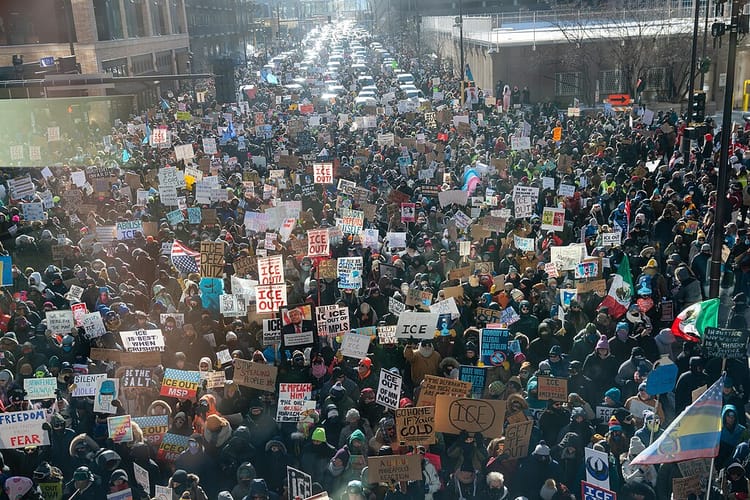There Can Be No Information Integrity Without Scientific and Political Integrity

I'm just back from COP30 in Belém and it is making me feel crazy to watch so many climate advocates and reporters declare the final text coming out of it a victory. It's true that the final text includes the words "information integrity" and you might think that as someone who has pointed out time and again that addressing disinformation is a critical first step to solving the climate crisis I would be pleased by that. Well, I would be if it weren't for the fact that a) those words appear in the preamble, which longtime COP watchers will know is where they put the platitudes and b) it's followed by a document that shows no commitment whatsoever to truth. The preamble also assures us that the COP presidency was committed to following the science, and yet what follows does anything but.
And yet, the text is being declared a win because it reaffirmed commitments to the Paris Agreement, created the Just Transition Mechanism (without operationalizing it), and mentioned financing adaptation...while failing to outline how that will work and leaving out finance for loss and damage altogether. A Guardian headline declared that the COP30 deal "inches closer" to the end of the fossil era, and I saw post after post from climate advocates in my feed celebrating either the inclusion of information integrity or just transition or both. Nowhere was there mention of the grotesque displays of racism and homophobia in the closing plenary from many of the same countries that succeeded in stripping fossil fuel phaseout from the text and attempted to shame the negotiators from Colombia and Panama for objecting to it. Perhaps more to the point, nowhere was there mention that inching forward at a time when great leaps are needed is not a win.
Which left me wondering: what is the point of activism that celebrates hypocrisy? Or of journalism that doesn't tell the whole truth?
It was the same feeling I had roaming the Blue Zone last week and wondering what the fucking point was of about 90 percent of the booths and people and events I saw. Everyone was doing a very good job of making themselves look and feel important, but what were they there to do exactly? It felt like a whole lot of tapdancing on the Titanic. The most inspirational action, for me, came from the folks on the outside, marching in the streets or blocking the entrance to the venue, and from the small but mighty Colombian delegation, the only one whose negotiators and civil society groups were unified in their call for one primary goal: a commitment to phase out fossil fuels. This, by the way, is also the goal that one would have if one were following the science and committed to information integrity.
As for me, I'm an actions speak louder than words gal, so my take is that those advocating for information integrity should be calling out the hypocrisy of using that term or referring to COP30 as a "COP of Truth" while utterly betraying the meaning of those words. Otherwise, you are just co-signing a new version of greenwashing: info-integrity-washing.
Meanwhile, there is a small but growing movement to reform the COP process and that honestly seems like the only way forward. The consensus required by the current process means that a few countries can block progress for the rest of the world, and they have done so for 30 years. As Colombia’s Environment and Sustainable Development Minister, Irene Vélez Torres, put it, "this consensus has turned into veto." In the UNFCCC/IPCC chapter of the book we've been making our way through in season 14 of the podcast—Climate Obstruction: A Global Assessment—lead authors Kari dePryck and Eduardo Viola highlight the findings of peer-reviewed research on obstruction at COPs and IPCC meetings over the years, much of which converges around one simple fix: shifting from consensus to a seven-eighths majority. Doing so would finally end the days of a few countries hijacking what 190 others want to do, and seems to me like the only way to salvage this process.
It won't be easy, of course, the same countries that block progress on climate will fight against this change the same way they fight fossil phaseout. But there are efforts underway to apply pressure both within the UN and outside it. In April 2026, Colombia and the Netherlands will hold a summit to map out fossil phaseout. The same 24-country bloc that attempted to hold the line on keeping fossil fuel phaseout in this year's COP text have said they will attend, and that list includes some major fossil players like Australia and the U.K., so could apply additional pressure to the UNFCCC to reform COP.
Another move that could fix some of the impasse? More Global North countries agreeing to the finance mechanisms. India and China often block fossil phaseout language when it is not paired with finance, and for obvious reasons: energy transition is expensive, and those who profited from the problem energy source should help pay for the transition to the less problematic one. Those countries' negotiators have also often blocked phaseout language that only focuses on coal and not oil and gas as well. Outcomes like the one this year make it easy for the European Union and Japan, two countries whose negotiators fought hard against finance, to point to some of the BRICs countries as blockers rather than take accountability for their own obstruction.
The mess of COP highlights once again the importance of both climate litigation and civil disobedience in this moment. If governments are going to continue to dither as the climate crisis worsens and to let fossil fuel executives poison our air, water, and atmosphere with impunity, the only recourse citizens have left is the courts, which are overwhelmingly siding with humanity's right to live over industry's right to profit, and the streets. Speaking of which, this week we'll be bringing you the last two episodes of season 14 on exactly those two topics, with experts who will share what's working.
Keep demanding the actual truth, people!
Recommended reading and listening
I have never done this, but this week I'm just recommending Drilled stuff:
- Our podcast episode with some of the world's leading researchers on obstruction at COPs and the IPCC.
- Our interview with longtime COP observer Jessica Green on why we need more Colombia-style confrontation at COPs
- Our coverage of the first week and the last day of COP
- Our series on the small obscure entity the fossil fuel industry used to infiltrate UNEP, then the UNFCCC and then every COP since.





